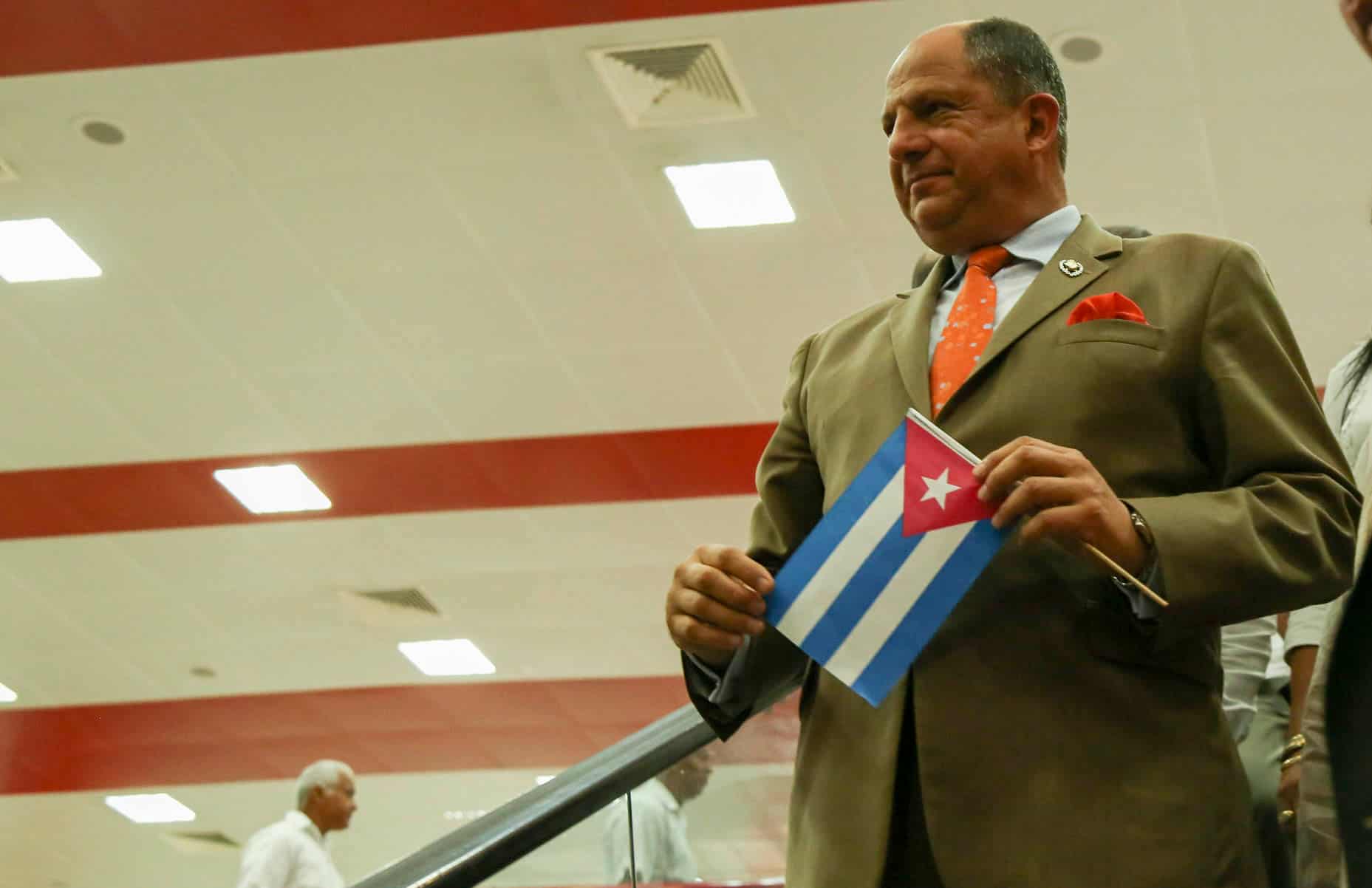Costa Rican President Luis Guillermo Solís’ frustration with the Cuban migrant crisis was clear in his remarks during a news conference Tuesday in Cuba.
Roughly 5,000 Cuban migrants have gathered in Costa Rica as a regional impasse continues to prevent the islanders from reaching the United States, where a favorable immigration law incentivizes them to fly to Ecuador and cross Central America on their way north.
“It’s up to the U.S. to administer its laws and it’s up to us, the victims of these laws, to administer them too,” Solís said during a news conference, referring to Costa Rica’s obligation to care for migrants as they cross the isthmus to reach the U.S. mainland.
This obligation to respect migrants’ human rights has since mushroomed into a national humanitarian operation for tiny Costa Rica. For over a month now, the Costa Rican government, churches and community centers have opened their doors to house and feed migrants in 14 shelters as Cubans wait for permission to cross into Nicaragua or fly to a third country. The National Emergency Commission has spent more than ₡134 million — roughly $250,000 — in its efforts to shelter the Cubans, according to reports from national media.
Uncle Sam was not the only one to get an earful from Solís as he wrapped up his official visit to Cuba on Tuesday. The Costa Rican president travels next to a regional meeting of Central American presidents in San Salvador, El Salvador, on Friday to address the same migrant crisis.
“I feel disappointed,” Solís said of other Central American countries, noting that Nicaragua, Guatemala and Belize – all three of which have closed their borders to the Cubans since Nov. 15 – all signed a Central American Integration System, or SICA, agreement on Oct. 2 agreeing to allow Cubans to pass through their respective countries en route to the U.S.
Costa Rica’s diplomatic efforts to resolve the migrant crisis have since stalled. This week’s meeting with SICA leaders will be the latest attempt to resolve the crisis before the Christmas and New Year holidays. Currently, more than 4,300 Cubans are being temporarily housed in 14 shelters across Costa Rica.
Before leaving for the island on Dec. 13, Solís said his visit –the first by a Costa Rican president since relations began to thaw between the two countries under former Costa Rican President Able Pacheco in 2003 – would be about more than migration. Casa Presidencial and the Foreign Ministry have both promoted the official trip as the last remaining step to a normalization of Costa Rica-Cuba relations after former President Óscar Arias re-established diplomatic relations with Cuba in 2009.
President Solís and an entourage of business leaders and lawmakers traveled to Cuba to explore potential business opportunities on the island for Costa Rican companies. Construction, tourism and Cuban public sector purchasing were three areas listed as possible growth markets for Costa Rica. The Foreign Trade Promotion Office, PROCOMER, and its Cuban equivalent, PROCUBA, signed an agreement on Dec. 14 to help promote foreign investment and trade between the two nations. In 2014, Costa Rica exported $38 million in goods to the island.







